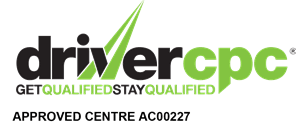About the module
This module helps drivers understand the impact that fatigue has on their driving and identifies ways to reduce the work-related road risk it can cause.
Topics include:
- Key causes of fatigue
- Risks and consequences of fatigue
- Lifestyle improvements to reduce the risk of fatigue
- Reducing stress related fatigue
- Reporting issues and seeking medical advice

At a glance:
Duration: 3.5 hours
Format: Classroom or online
Suitable for: All professional licences (C1, D1 C1E, D1E C, D CE & DE)
DVSA CPC syllabus areas:
3.1 To make drivers aware of the risks of the road and of accidents at work
3.3 Ability to prevent physical risks.
3.4 Awareness of the importance of physical and mental ability.
3.6 Ability to adopt behaviour to help enhance the image of the company



Learning outcomes

Understand how fatigue affects drivers

Identify and reduce the causes of fatigue

Strategies to lower the likelihood of fatigue

Learn when to report issues or seek advice
Why attend Driver Fatigue
Educating drivers about the risk of fatigue is a cost-effective way to reduce incidents, collisions, conviction rates, protect business reputation and avoid unnecessary penalties and costs.
Driver Fatigue highlights the impact of fatigue on driving and how to recognise the signs, the consequences of an incident and their responsibilities. Our experienced driver trainers fully engage with participants to maximise the learning experience and draw out their views and opinions.

Your questions answered
Who should attend?
Any professional driver who needs to complete 35 hours of periodic training every 5 years in order to maintain their Driver Certificate of Professional Competence (CPC).
Delivery method
This module can be delivered online or in-person and facilitated by an experienced Driver CPC trainer.
For pay-per-place courses, Driver Fatigue is delivered with the Traffic Incidents & Collisions module as a 7-hour online course.
For private courses, this module can be delivered online or in-person alongside any other TTC Driver CPC module.
Need help joining an online course through Zoom?
TTC has experience of delivering online courses through Zoom to hundreds of thousands of drivers each year. We have used this experience to make the process of joining an online course with TTC as simple as possible.
TTC highly recommends that you take 15-minutes to test your equipment and make sure that you have the Zoom app installed, and working with your microphone and camera. Please visit our Zoom Technical Support page for a user-friendly guide to help make sure you get the most our of your online course with TTC.
Learning outcomes
Following this module drivers will understand:
- What constitutes a distraction
- The effects of different types of distractions
- Why maintaining concentration can be challenging
- How to manage distractions effectively
Identification requirements
A photocard driving licence and Driver Qualification Card must be presented when attending the course.




